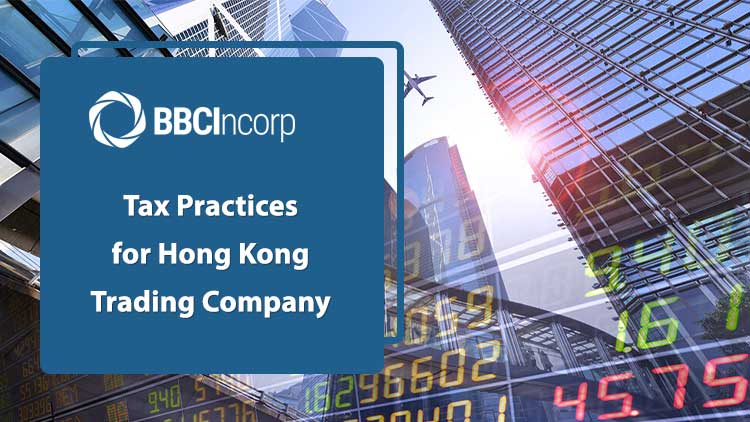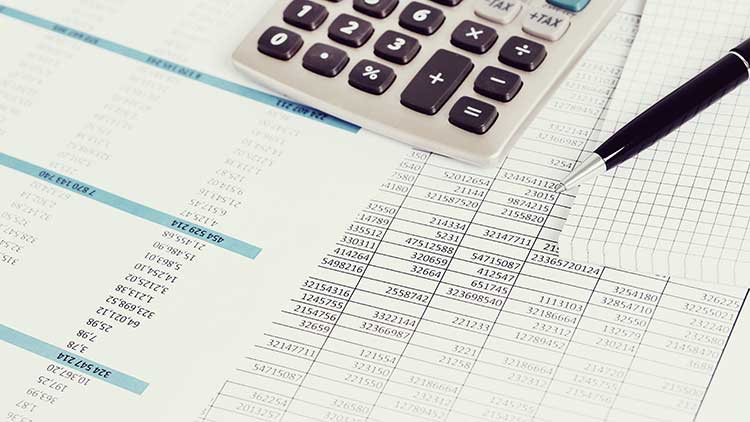
Being globally renowned for the privilege of availing free trade ports, setting up a Hong Kong trading company is staying on top of trends. Trading and logistics accounted for 19.8% of Hong Kong GDP, according to HKTDC’s recent report.
One of the leading features that attracts oversea investment in Hong Kong trading companies is the trade liberalization and competitive tax regime.
Then you must be wondering “How does your trading business take advantage of the Hong Kong tax system?”
This article provides a guide to Hong Kong’s taxation system for trading companies and explains the key aspects of Hong Kong’s customs and trade environment.
1. Key highlights of Hong Kong customs and trade
Hong Kong is a free port and has one of the most liberal taxation regimes. This makes this country an attractive place to do business and to invest.

Trade liberalization as the global network of trade agreements. Hong Kong has a number of customs and tariff arrangements in place which are specific to Hong Kong trading companies.
One of the most notable agreements is the Closer Economic Partnership Agreement (CEPA) which was signed between Hong Kong and China in 2003. CEPA allows Hong Kong businesses to enjoy preferential treatment when trading with China, including reduced tariffs and simplified customs procedures.
Comprehensive Double Taxation Agreements (DTAs) of Hong Kong. The country has signed 55 tax treaties with multiple jurisdictions to reduce or eliminate double taxation for businesses. Companies registered in Hong Kong can facilitate the treaties and cut the tax burden.
No need of origin certification for importing goods. For exporting goods out of Hong Kong, in case the destination country requires, you may be required to certify the origin of products. However, you are not required to do so when importing goods into Hong Kong.
No-tax policies. Hong Kong doesn’t collect certain tax types, which is beneficial to your trading business:
- No sales tax or Value Added Tax (VAT);
- No withholding tax on dividends and interest;
- No capital gains tax;
- No tax on dividends;
- No estate tax.
Shipping incentive tax regime. To encourage shipping activities, income sourced from the international shipping operations is free of tax.
Do you know How to Start a Hong Kong Trading Company? Read this guide.
2. Common taxes of your Hong Kong trading company
The Hong Kong tax system is simple to understand, and it is also the reason you want to place your business there.
When starting a Hong Kong trading company, it is important to be aware of the various taxes that will need to be paid. Here are tax types that are mostly applicable to a Hong Kong trading company.

2.1. Corporate tax or Profit tax
A Hong Kong trading company is liable to corporate tax on its profits arising from business activities in Hong Kong. The highest corporate tax rate is 16.5%. First HKD 2 million assessable profit is only taxed at 8.25%.
In some cases, if qualified, your trading business is eligible to claim a tax deduction for certain expenses incurred in the course of its business activities.
2.2. Custom duties of a Hong Kong trading company
Before goods come to your hands, the customs department examines the goods and checks if there are any declaration requirements and relevant duties.
Typical customs duties are import and export duty. Though, the Hong Kong government does not levy customs tariffs on imports and exports, nor impose tariff quotas or surcharges. This means that your trading business will be free of import duties and export duties.
Still, there are some exceptions. Your business will be subject to tax if importing the following goods:
- Motor vehicles for use on the road (Vehicle First Registration Tax administered by the Transport Department);
- Dutiable goods, including liquors, tobacco, hydrocarbon oil and methyl alcohol.
2.3. Stamp duty
Certain types of documents will be subject to stamp duty in Hong Kong. Below are four typical documents that are required to be stamped:
- Conveyance on sale;
- Agreement for sale of real estate;
- Lease of real estate;
- Transfer of Hong Kong shares.
The rate will vary depending on types of documents, also terms and conditions included in the documents.
2.4. Excise tax
An excise tax is a type of tax that is levied on certain goods produced or consumed within a country.
Typically, you don’t have to pay excise tax while trading in Hong Kong. Only dutiable goods are subject to excise tax. Thus, if you are going to trade or import dutiable goods, you’ll likely be required to pay excise tax. The amount of the tax is typically based on the type and value of the product, its weight, or the quantity involved.
Excise taxes are often used to raise money for government programs or to protect local industries from foreign competition. Hong Kong trading companies should be aware of any excise taxes that may apply to their products and take steps to comply with the regulations.
2.5. Withholding tax
One important aspect of Hong Kong tax law which most trading companies should be aware of is Hong Kong withholding tax.
Withholding tax is a tax which is deducted from certain payments made to non-residents. The purpose of withholding tax is to ensure that non-residents pay tax on income which they earn in Hong Kong.
The amount of withholding tax which is payable depends on the nature of the payment and the residency of the recipient.
Note that Hong Kong doesn’t impose withholding tax on dividends and interests.
3. Keynotes to minimize your tax liability
The Customs and Excise Department (C&ED) is responsible for the assessment and collection of taxes on goods imported and exported from Hong Kong.
The amount of tax payable will vary depending on the type of good or service being taxed, and the Hong Kong customs authority can provide more specific information on the rates applicable to your business.
Take the following advices to save money on your taxes:
- Understand the tax rules and regulations to avoid penalty;
- Consider countries that have DTAs with Hong Kong as trading partners to avoid double taxation;
- Study Hong Kong’s FTA network to know how to facilitate the benefits such as preferential tax rates, tariff elimination;
- Utilize tax relief policies that are generally outlined in Hong Kong Budget 2022-2023;
- Operate your trading business under an offshore Hong Kong company.
It is important to ensure that you are aware of and comply with all Hong Kong tax regulations, as failure to do so can result in significant penalties.
4. The bottom line
Hong Kong has a comprehensive and simple tax system which is conducive to the development of Hong Kong as an international center for trade and investment.
Overall, the Hong Kong taxation system is favorable for businesses. The Hong Kong government has made a number of concessions to encourage businesses to set up in Hong Kong, and the low tax rates make Hong Kong an attractive destination for trading companies.
If you are considering setting up a trading company in Hong Kong, it is important to understand the Hong Kong taxation system and how it applies to your business.
Disclaimer
While BBCIncorp strives to make the information on this website as timely and accurate as possible, the information itself is for reference purposes only. BBCIncorp would like to inform readers that we make no representation or warranty, express or implied. Feel free to contact BCCIncorp’s customer services for advice on specific cases.
Get helpful tips and info from our newsletter!
Stay in the know and be empowered with our strategic how-tos, resources, and guidelines.

